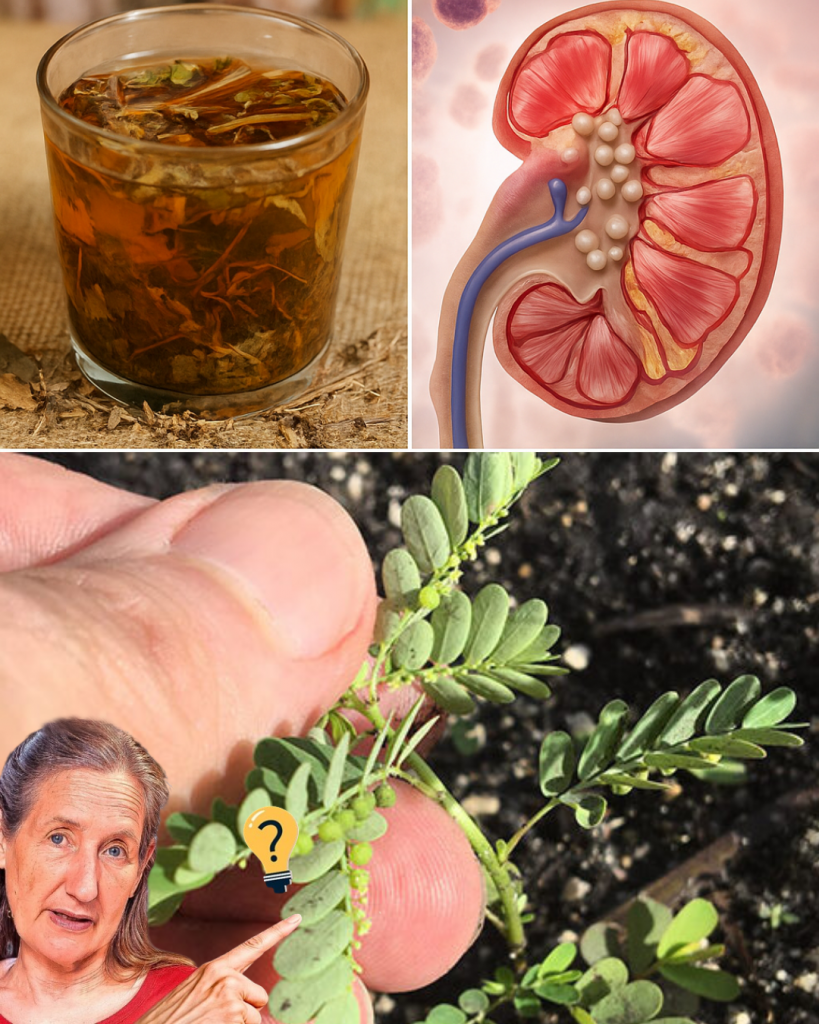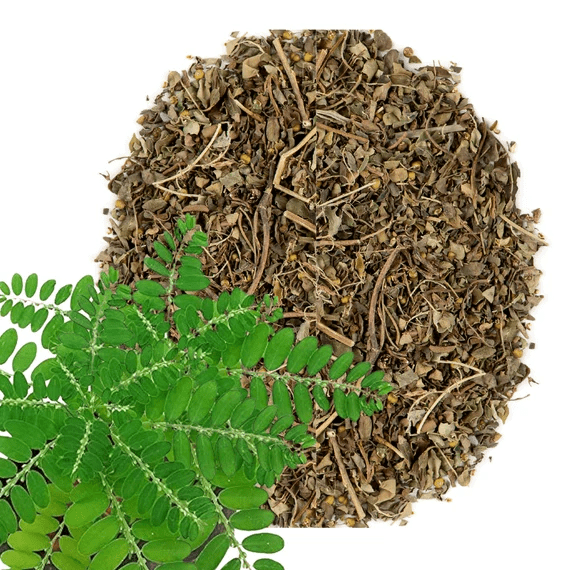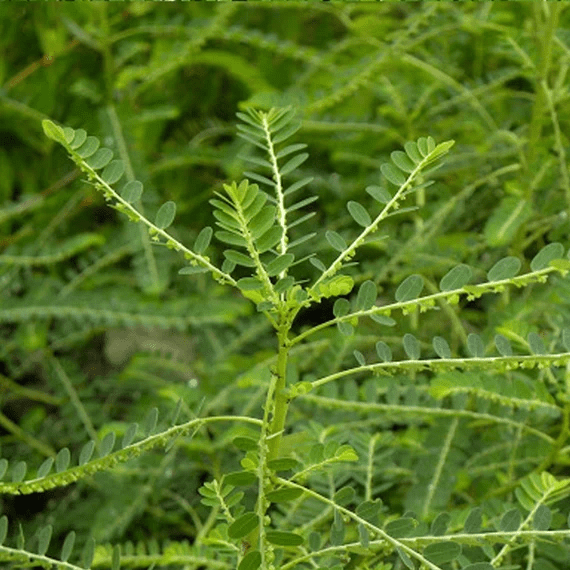Have you ever wondered if a simple plant could hold the key to transforming your health? Imagine a humble herb, growing wild in tropical landscapes, quietly harboring extraordinary medicinal powers. Meet Phyllanthus tea, derived from the Phyllanthus plant, commonly known as “chó đẻ răng cưa” in Vietnam or “diệp hạ châu” (stonebreaker). This unassuming herb has been a cornerstone of traditional medicine for centuries, revered for its ability to heal, detoxify, and rejuvenate. Ready to discover why this tea is capturing the attention of health enthusiasts worldwide? Let’s dive into the remarkable benefits of Phyllanthus tea and why it deserves a spot in your daily wellness routine.

A Glimpse into Nature’s Pharmacy 🌱
Phyllanthus tea comes from the Phyllanthus plant, a small, herbaceous shrub that thrives in tropical regions, including Vietnam. Known scientifically as Phyllanthus urinaria or Phyllanthus amarus, this plant has earned its nickname “stonebreaker” for its potent effects on health, particularly in supporting the liver and kidneys. Its leaves, stems, and fruits are carefully harvested, dried, and brewed into a tea that delivers a slightly bitter, cooling taste with a wealth of therapeutic properties. For generations, communities across Asia, India, and South America have turned to this plant to treat ailments ranging from liver disorders to skin conditions. Modern science is now catching up, unveiling the secrets behind its time-honored reputation.
A Powerhouse for Liver Health 💪
Your liver is your body’s detox powerhouse, working tirelessly to filter toxins and keep you vibrant. Phyllanthus tea shines as a natural ally in supporting liver function. Studies have shown that the plant contains bioactive compounds like flavonoids, alkaloids (such as phyllanthin), and lignans that work synergistically to protect liver cells from damage. These compounds help reduce inflammation, combat oxidative stress, and promote the regeneration of liver tissue.
One of the most celebrated benefits of Phyllanthus tea is its ability to combat hepatitis B. The tea’s active ingredients, particularly phyllanthin, have been found to inhibit the replication of the hepatitis B virus by suppressing its DNA polymerase enzyme. This action prevents the virus from latching onto human DNA, allowing the body to flush it out more effectively. For those dealing with liver conditions like fatty liver or elevated liver enzymes, sipping Phyllanthus tea may help restore balance and improve liver function over time. It’s like giving your liver a refreshing reset, naturally.
Breaking Down Kidney Stones Naturally 🪨
Kidney stones can be excruciating, but Phyllanthus tea offers a natural solution that lives up to its “stonebreaker” name. Research, including studies conducted in Brazil, has demonstrated that the tea increases urine output, helping to flush out toxins and prevent the formation of calcium oxalate crystals—the building blocks of kidney stones. Regular consumption over one to three months may even reduce the size of existing stones, easing discomfort and supporting kidney health. By promoting diuresis (increased urine production), Phyllanthus tea acts as a gentle yet effective remedy for maintaining a healthy urinary system.
A Natural Pain Reliever and Anti-Inflammatory 🔥
Imagine a tea that not only soothes your body but also tackles pain with surprising potency. Phyllanthus tea contains a unique blend of steroids, such as beta-sitosterol, and gallic acid, which have been shown to provide pain relief up to three times stronger than morphine and four times more effective than indomethacin, a common anti-inflammatory drug. Whether you’re dealing with joint pain, muscle soreness, or inflammation-related discomfort, this tea offers a natural alternative to over-the-counter painkillers. Its anti-inflammatory properties also make it a go-to remedy for conditions like arthritis, helping to calm flare-ups and improve mobility.
Boosting Digestive Health 🍽️
Struggling with digestion? Phyllanthus tea might be the gentle nudge your gut needs. The tea stimulates appetite, promotes healthy digestion, and helps alleviate issues like constipation, bloating, and irritable bowel conditions. Its bioactive compounds, including alkaloids, support smooth muscle relaxation, reducing spasms in the digestive tract. In traditional medicine, Phyllanthus has been used to treat ailments like dysentery, colitis, and stomach pain, making it a versatile addition to your digestive wellness toolkit. Sip it after meals to ease discomfort and keep your digestive system running smoothly.
A Shield Against Infections 🛡️
Phyllanthus tea is a natural antimicrobial warrior, capable of fending off harmful bacteria and viruses. Its flavonoid and alkaloid content gives it mild antibiotic-like properties, making it effective against pathogens like Staphylococcus (staph infections), E. coli, and even typhoid-causing bacteria. This makes the tea a valuable ally for treating skin infections, urinary tract infections, and even respiratory issues like bronchitis. In some cultures, it’s used to soothe sore throats and clear mucus, offering relief from colds and coughs. By boosting your body’s defenses, Phyllanthus tea helps you stay resilient against everyday infections.

Supporting Blood Sugar and Heart Health ❤️
For those managing diabetes or concerned about heart health, Phyllanthus tea offers promising benefits. Research from the 1990s revealed that the tea can significantly lower blood sugar levels in diabetic patients after just 10 days of use. Its hypoglycemic effects help regulate glucose, making it a supportive tool for managing type 2 diabetes. Additionally, the tea’s ability to reduce blood lipid levels and prevent fat accumulation in the liver can lower the risk of atherosclerosis, a key contributor to heart disease. By incorporating Phyllanthus tea into a balanced lifestyle, you may support both your blood sugar and cardiovascular health naturally.
Healing Skin and Wounds ✨
Phyllanthus tea isn’t just for drinking—it’s a versatile remedy for skin health, too. When applied topically, the tea’s antimicrobial and anti-inflammatory properties make it effective for treating acne, boils, and minor wounds. Traditionally, fresh Phyllanthus leaves are crushed and mixed with a pinch of salt to create a paste that soothes skin irritations and speeds up wound healing. Drinking the tea can also help clear up conditions like hives or dermatitis from the inside out, giving your skin a healthy, radiant glow. It’s nature’s answer to a clearer, healthier complexion.
Aiding Weight Management and Detoxification ⚖️
Looking to shed a few pounds or detox your body? Phyllanthus tea may be your new best friend. Its diuretic properties help flush out excess water and toxins, reducing bloating and supporting kidney function. When combined with other herbs like lotus leaf, it can aid in weight loss by lowering blood lipids and boosting metabolism. The tea’s detoxifying effects also help cleanse the body of harmful substances, leaving you feeling lighter and more energized. For optimal results, pair it with a balanced diet low in salt and high in lean proteins like fish or tofu.
How to Enjoy Phyllanthus Tea 🍵
Preparing Phyllanthus tea is simple and rewarding. Start with 8–15 grams of dried Phyllanthus leaves or a handful of fresh leaves. Rinse them thoroughly, then boil in 500 ml of water until it reduces to about 200 ml. Strain and sip the tea throughout the day, or use it as a cooling drink to stay hydrated. For added flavor, mix with a touch of honey or combine with other herbs like nhân trần (artichoke tea) or vọng cách. Avoid drinking it continuously for more than 30 days to prevent potential side effects, and always consult a healthcare professional before starting any herbal regimen.

A Word of Caution ⚠️
While Phyllanthus tea is a natural wonder, it’s not for everyone. Its cooling nature may worsen digestive issues in those prone to bloating or loose stools. Pregnant women should avoid it, as it may cause uterine contractions or affect blood vessels, posing risks to the fetus. Overuse can also lead to side effects like fatigue, low blood pressure, or reduced immunity, so moderation is key. Always seek guidance from a doctor, especially if you’re on medication or managing chronic conditions.
Why Phyllanthus Tea Deserves Your Attention 🌟
Phyllanthus tea is more than just a beverage—it’s a gateway to natural healing, backed by centuries of tradition and modern science. From protecting your liver to breaking down kidney stones, easing pain, and boosting digestion, this humble tea offers a wealth of benefits in every sip. Its versatility, affordability, and accessibility make it a must-try for anyone seeking a holistic approach to wellness. So, why not brew a cup today and unlock the ancient secrets of this remarkable herb? Your body will thank you for it.









